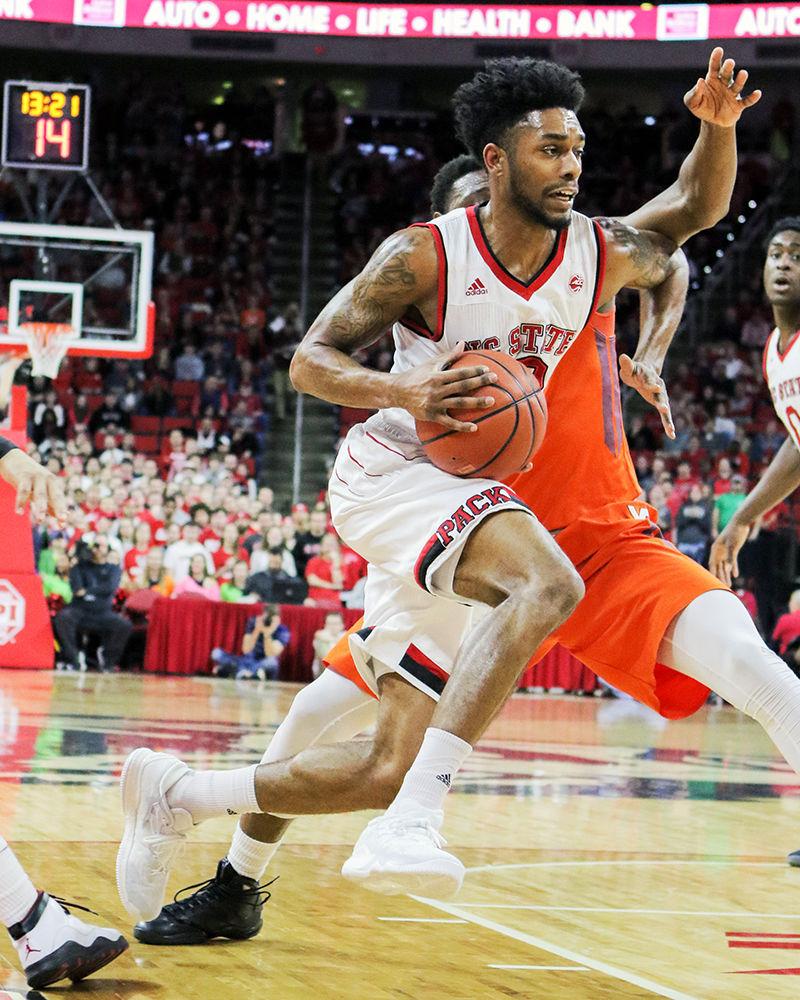NC State standout guard Terry Henderson was denied a sixth-year waiver by the NCAA, ending his college career. Henderson, the Wolfpack’s second-leading scorer last season, appealed for another year of eligibility after having lost one transferring to State and another due to injury.
Yet, in similar cases across college athletics, athletes have been granted additional playing time. In this case and others, the NCAA has proven itself to be a hypocritical organization undeniably lacking due process in its decision-making.
The NCAA allots student-athletes four years of playing eligibility and five calendar years to use them. In many instances, hardships prevent athletes from completing all four years in that time period, and those players often attempt an appeal process with the NCAA to be allowed additional eligibility.
Terry Henderson transferred from West Virginia to play for his hometown team NC State in 2014. Under NCAA rules, players are required to sit out the season in which they transfer. When he took to the court in the 2015 season opener, he played for only seven minutes before suffering ligament damage in his right foot, placing him off the court for the year. In 2016, his only complete season for the Wolfpack, he led the team in 3-pointers and averaged nearly 14 points per game.
In March, Henderson appealed to the NCAA for a sixth year of eligibility. His case was an almost direct parallel to that of Oregon’s Dylan Ennis, who had transferred earlier in his career and had also suffered a season-ending foot injury only two games into the year. Ennis was happily granted a sixth-year of eligibility, as the NCAA stated, “based upon the totality of the circumstances and student-athlete well-being.”
Henderson’s process didn’t go as smoothly. The NCAA did not provide any form of a timetable for their review process to Henderson or NC State. As the waiting game began yet again for Henderson, his hopes should have been high as the NCAA granted Ben Carter, a graduate transfer at Michigan State, a sixth-year waiver. Northwestern State guard Jalan West was granted a seventh-year waiver this May as well. Naturally, the decision surrounding Henderson was shocking considering he was not afforded the same privilege.
The NCAA does not make its review process or the details of its eligibility cases public. Essentially, anonymous individuals wield absolute power in making life-changing decisions for student-athletes, without any form of review or fear of retribution. This lack of judgment is especially disconcerting considering the NCAA is far from an unbiased organization.
Without any framework for official decision, how can judgments such as this one from the NCAA be considered legitimate? They can’t. These are entirely arbitrary. When any decision is left to the association, it becomes a roll of the dice. There is no longer a desire for integrity in the NCAA; what their leaders decree is the reality which the collegiate sports world must live with.
Terry Henderson is just as deserving as Dylan Ennis, or any of the dozens of others granted additional eligibility every year. His career was ended by an administrator he will never meet. Henderson has expressed respectable demeanor in reaction to this debacle, and will move on with composure.
But for just a moment, perhaps the collegiate sports world shouldn’t. Decisions from the NCAA must be understood as arbitrary and biased, and should be subject to review. The longer it takes for the association to institute due process in its decision making, the more the NCAA will be shaped by the will of administrations than those who actually play the game.








